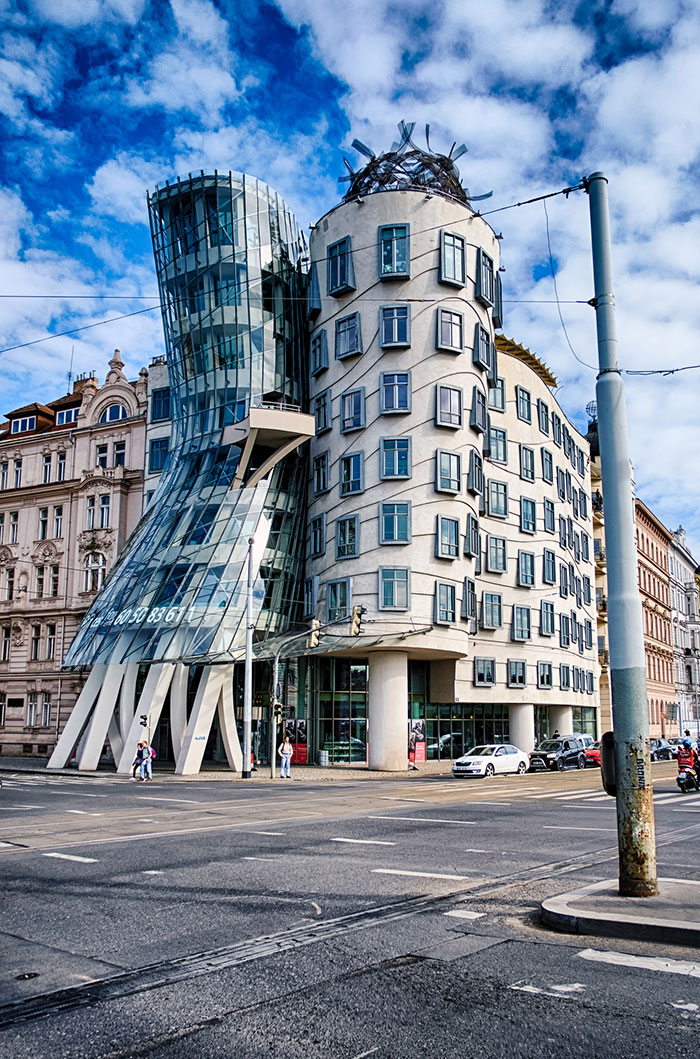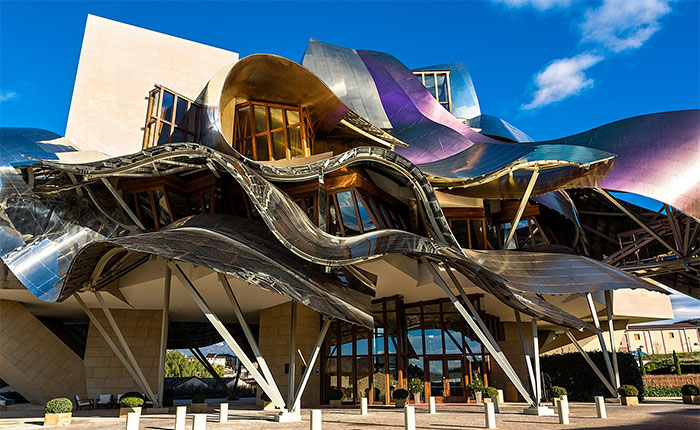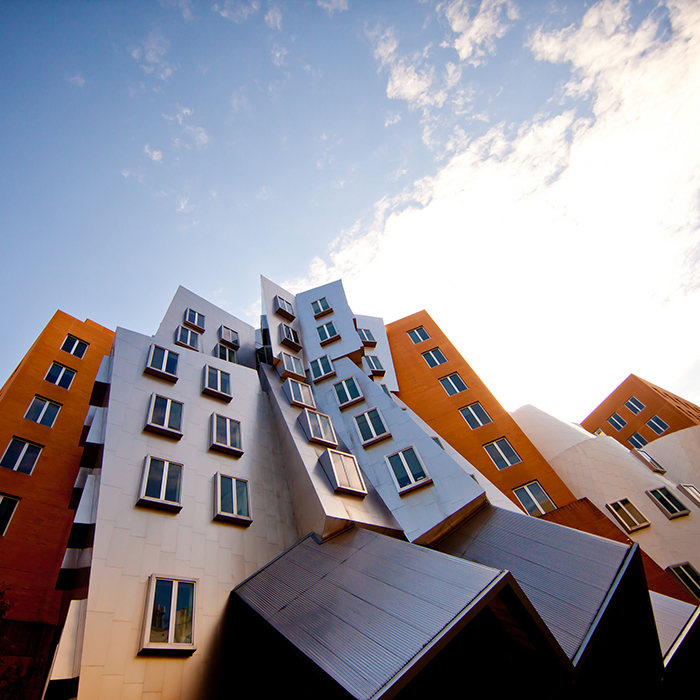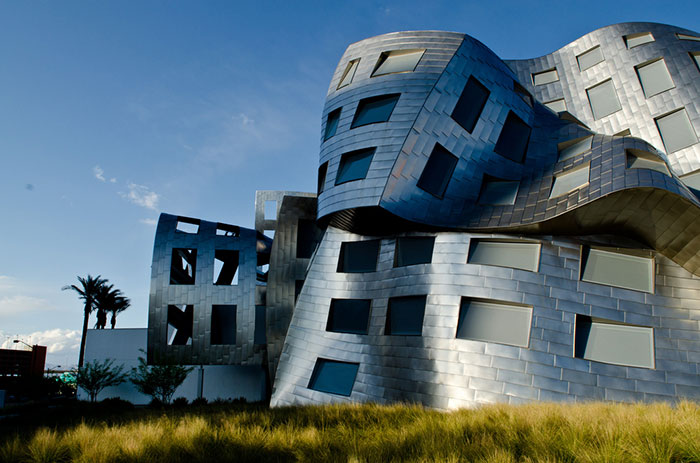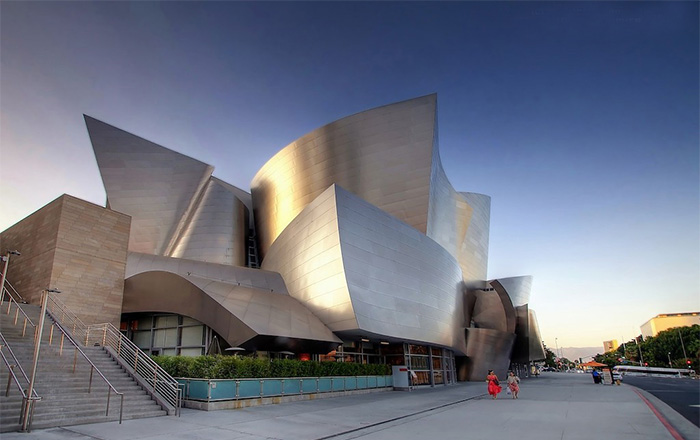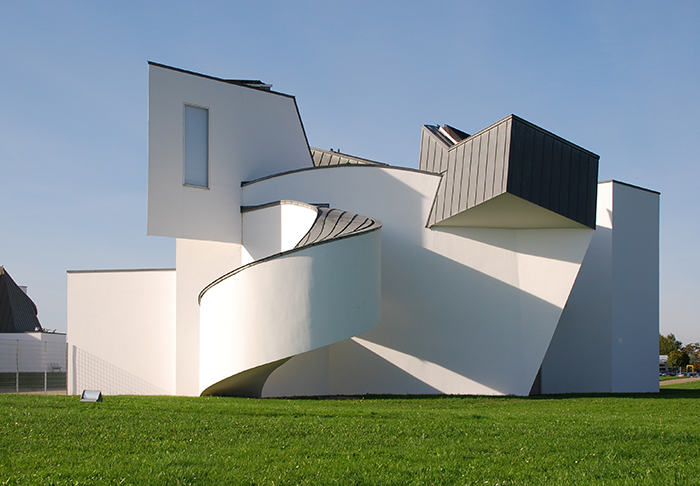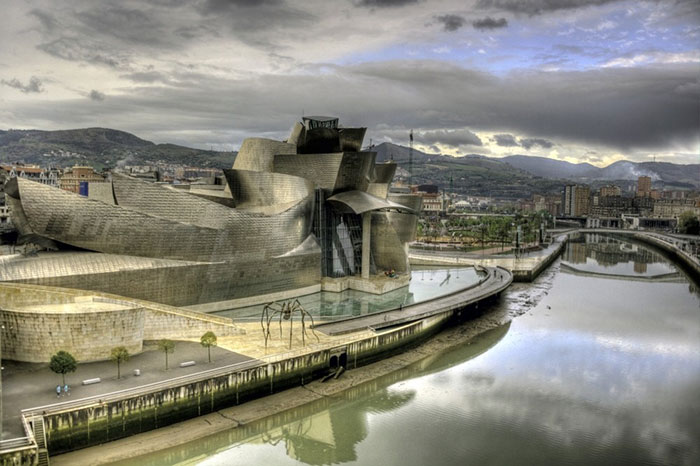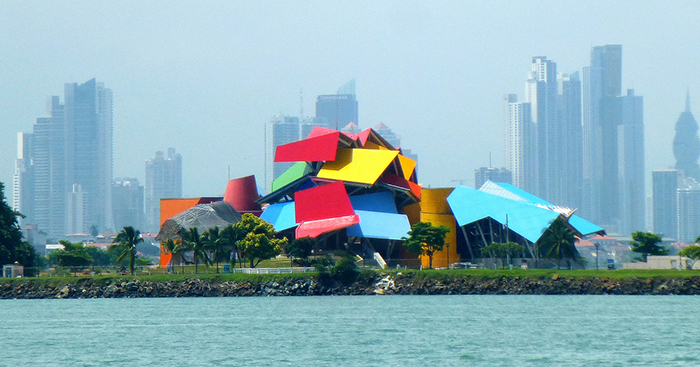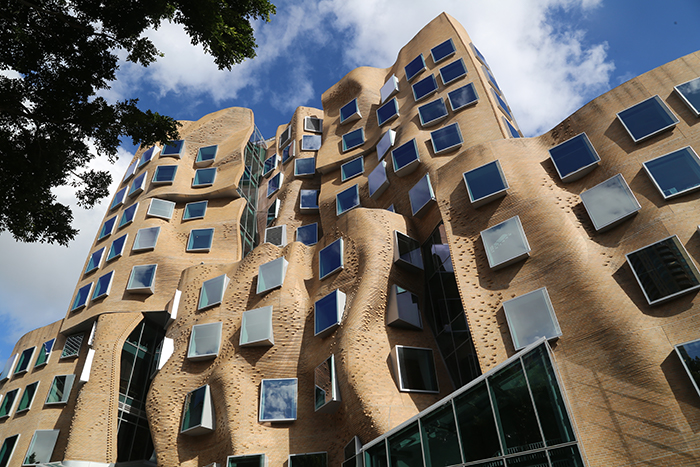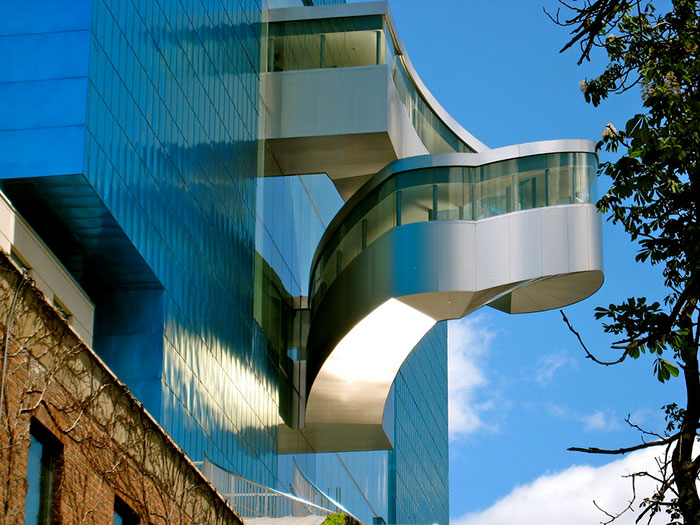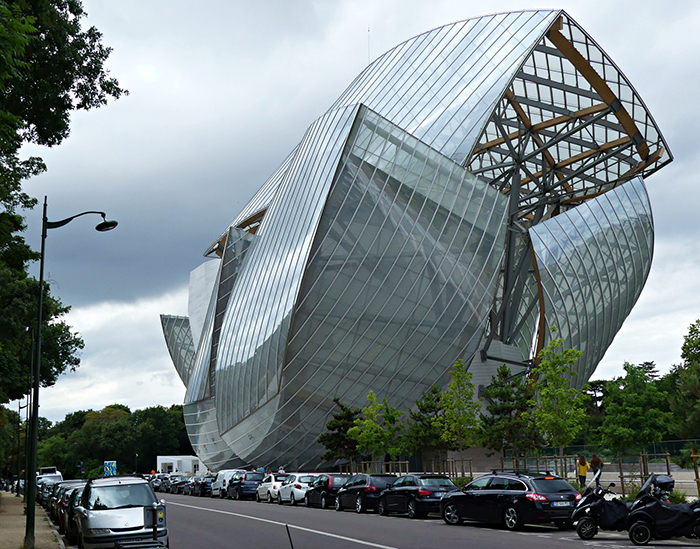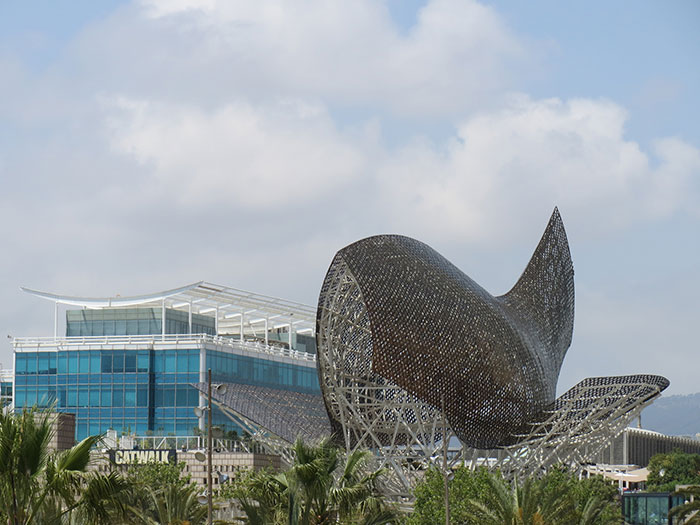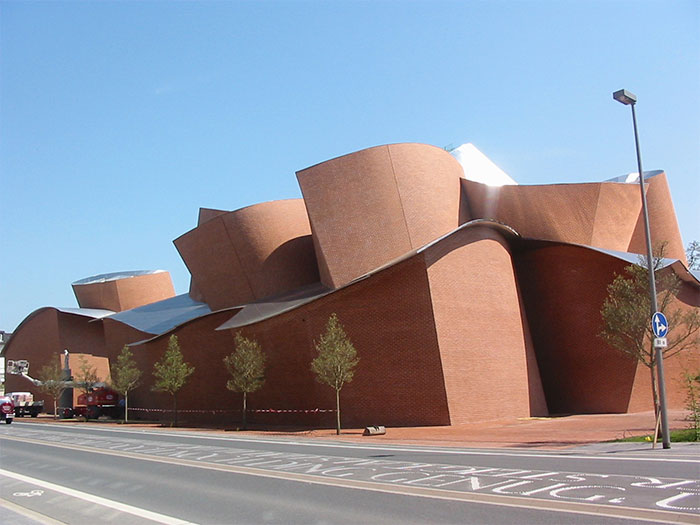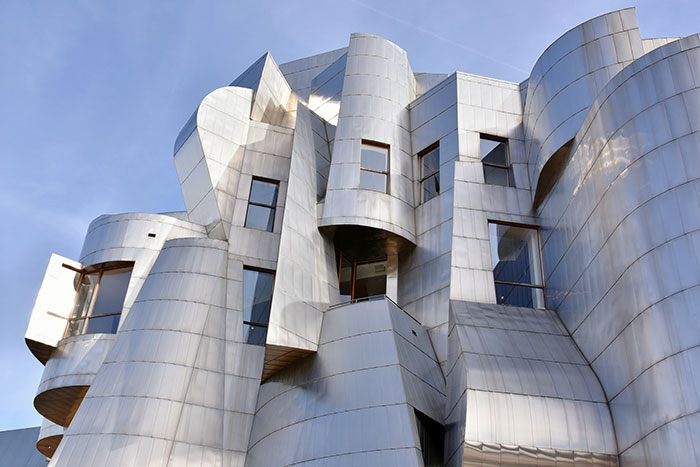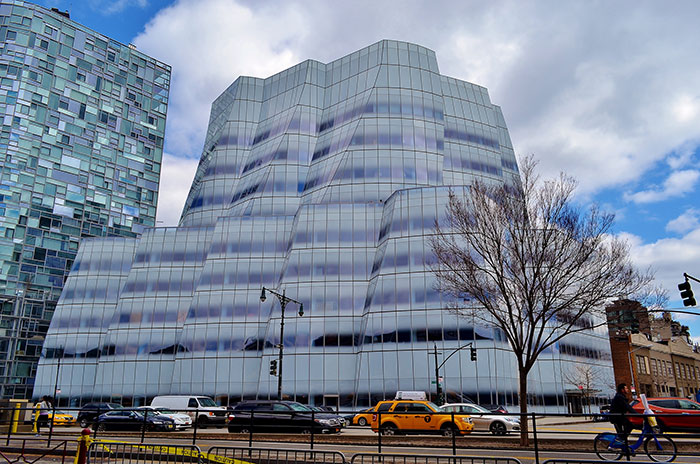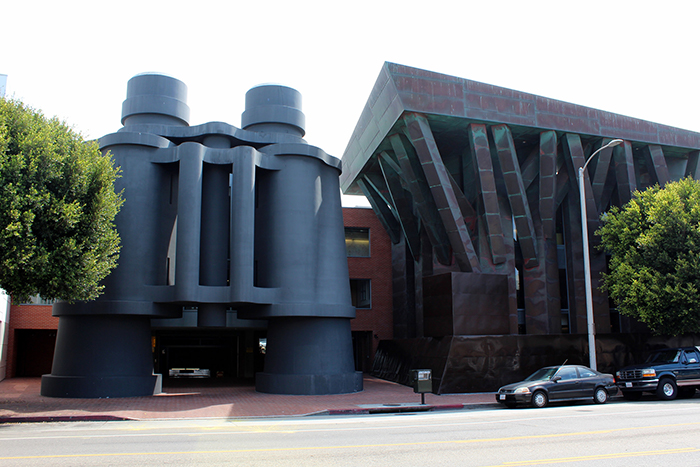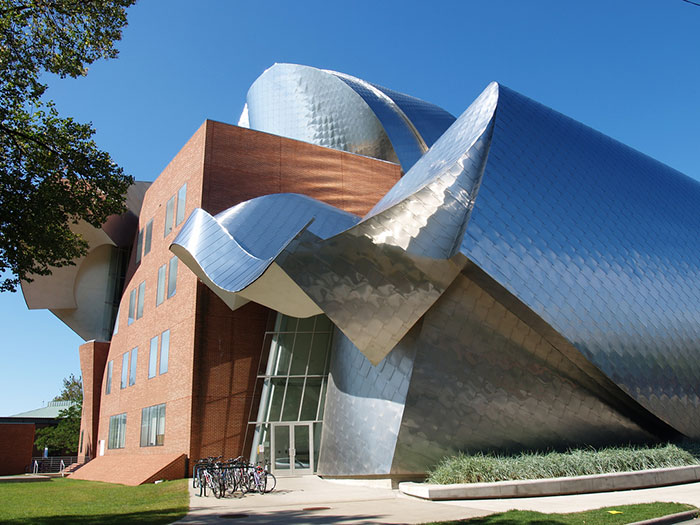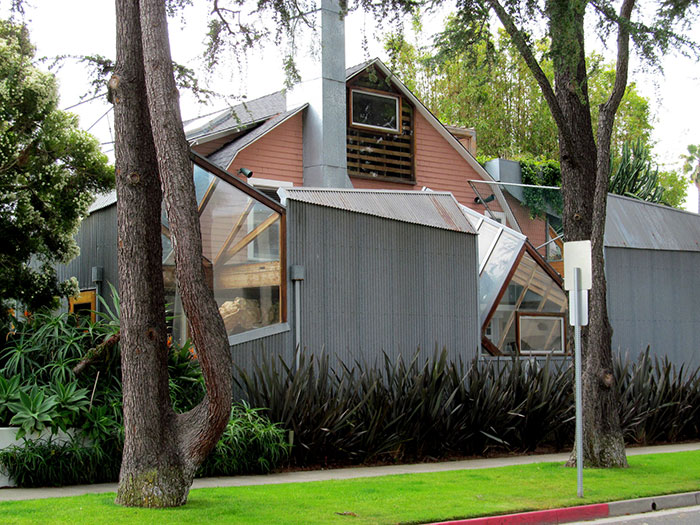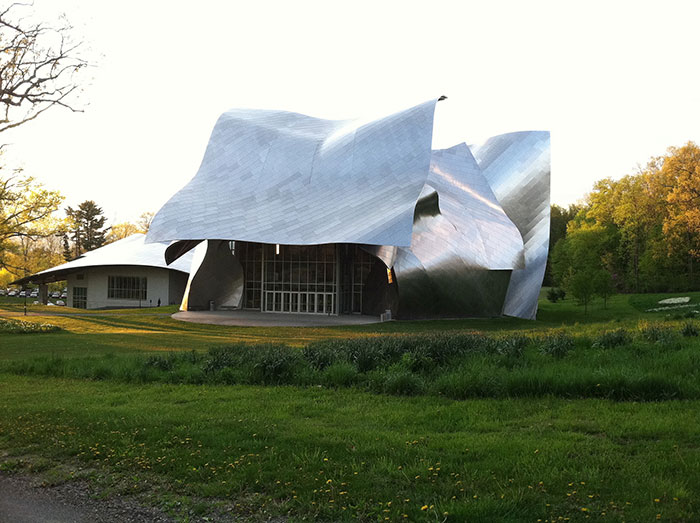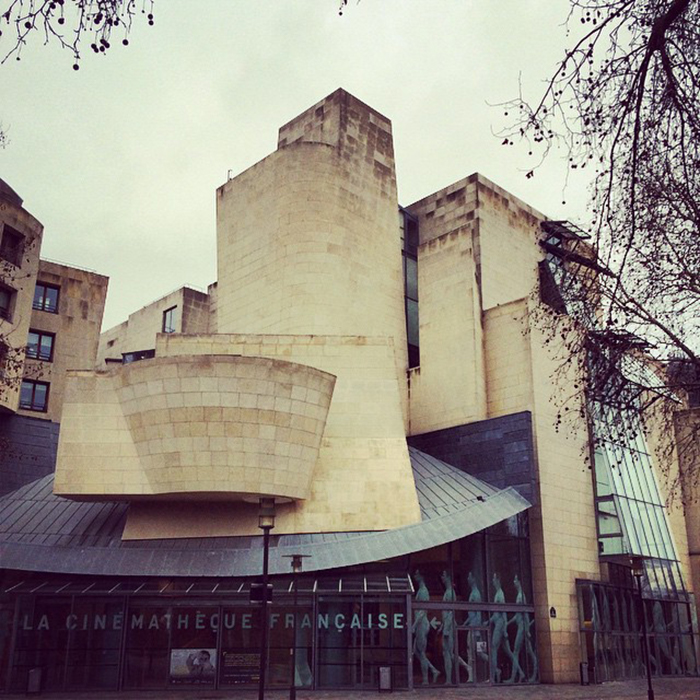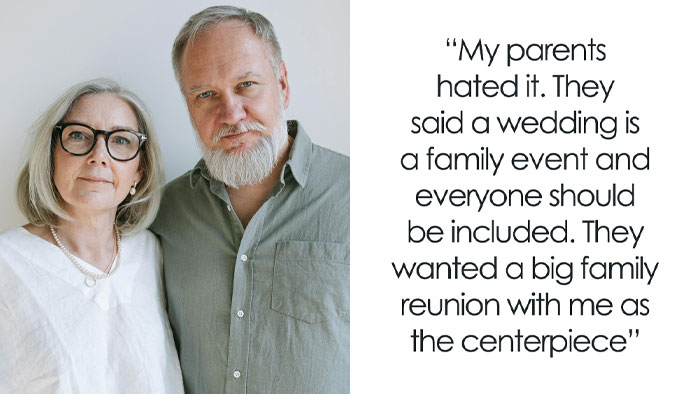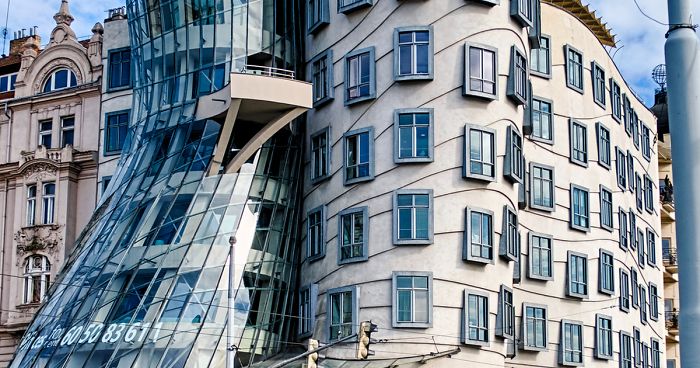
These 21 Buildings By Architect Frank Gehry Actually Exist And They Look Like They Are From A Sci-Fi Movie
In the world of architecture, there has been a strong storm coming from Canada and USA since the early 1960s. It was a powerful cultural force, that pushed through established, conventional norms of architecture like a tornado, but a tornado which not only destroyed the old and boring but also created and invented. This tornado goes by the name of Frank Gehry. Born in 1929, Gehry eventually moved to the USA, where he started his business. Surprisingly, it was a furniture line, but that was just the first step. After having saved enough money, he began by transforming his own home, thus creating a name for himself. What followed were the gradual steps of becoming a living icon of architecture, that has remodeled many urban landscapes and even created an economic phenomenon. We have combined 10 of his most famous buildings that defined an era of building design.
This post may include affiliate links.
Fred And Ginger, Prague, Czech Republic
There are good dancers and bad dancers. And it’s not people that we’re talking about this time, but buildings. The Fren And Ginger or The Dancing House in the Chech Capital is one of the most controversial works of Gehry, because of the audacity that he had when he thought of and implemented the idea of building two modern, dancing buildings that don’t fit in with their classical surroundings. Yet unusual shapes have enriched Prague’s old town and now it's iconic. Oh, and the name ‘Fred and Ginger’ was chosen because of the dancers Fred Astaire and Ginger Rogers that inspired Frank Gehry.
Museum Of Pop Culture, Seattle, Washington
This massive construction looks like it’s melting under Seattle’s mellow sun, yet it’s far from that. This sheet-metal covered structure was inspired by the rock music and the energy that it embodies. Gehry even admitted that the preparations included buying and putting together guitar pieces in order to create a form which would inspire the soon-to-be the museum of pop culture.
Marqués De Riscal Hotel, Elciego, Spain
A small Spanish Town in a region that is famous for its wine today is probably even better known for something way more extravagant. It's yet another boundary-breaking Gehry's work and it's a luxury hotel that looks like something that would make Dox Quixote forget about windmills and start preparing for a much bigger battle.
Stata Center, Cambridge, Massachusetts
The full name of this building is "The Ray and Maria Stata Center for Computer, Information and Intelligence Sciences" and it's was designed for none other than the Massachusetts Institute of Technology. It was built in the place of Building 20, a place which was surrounded by legends and local M.I.T. folklore. Since 2004 the Stata Center has attracted so much attention that it's become a legend of its own.
Lou Ruvo Center, Las Vegas, Nevada
This work is not a museum, nor a concert hall, in fact, it's something quite to the contrary. It's a center for brain health, or as the full name goes The Lou Ruvo Center for Brain Health. Lou Ruvo is a businessman from Las Vegas, who lost his father due to complications of Alzheimer's disease. Therefore he initiated the project and in 2010 it became reality.
Just like Jaguarundi my brain starts to protest when looking at this photo, but as it houses a Center for Brain Health, it kinda makes sense.
Walt Disney Concert Hall In Los Angeles, California
It took over 15 years from the start of the Walt Disney Concert Hall project to its completion. When it was finished back in 2003, the final project cost was estimated to be $274 million. Yet critics and locals agree - it was worth the wait and the money. A monument of modern architecture created what has become an essential part of the city. And if you’re wondering what the inspiration behind something grand like this, it’s the wind. Gehry’s a passionate sailor, therefore the building looks as if it is in motion.
Vitra Design Museum, Weil Am Rhein, Germany
Despite having completed many cutting-edge projects all over the world, this one was the first in Europe. It's a museum that exhibits furniture and interior design pieces and solutions, yet it's the building itself that attracts the most attention. It's special in more ways than one - it was the first time Gehry said yes to curved forms in his project. The result speaks for itself.
Guggenheim Bilbao, Bilbao, Spain
Even though It looks like something where Ice King from Adventure Time would live in if he had a house in Spain, Guggenheim Bilbao serves a big purpose - it’s a museum of modern and contemporary art which in itself is a piece of art. Named as one of the most important works of architecture in the last decades by numerous experts, this building has many reasons why it’s unique. This construction was so successful and well acclaimed that it started attracting tourists to the city of Bilbao. Lots of tourists. During the first 12 months since the museum opened, tourists generated $160 million for the local economy. This building basically revived an entire city. This economical phenomenon even received a name - the Bilbao Effect.
Biomuseo, Panama City, Panama
Biomuseo, an ecology museum, was yet another step for Gehry, as this was his first project in Latin America. Panamanian politicians started talks with Gehry about realizing his works in this location in hopes that this would eventually create a "Bilbao Effect" and attract more tourists and investments. The bright colors, which is not a typical characteristic of Gehry's work, were chosen to represent the rich nature of Panama.
Dr. Chau Chak Wing Building, Sydney, Australia
In 2015, Gehry's influence reached the seventh continent when he finished his first project in Australia. It's a business school building of the University of Technology Sydney and it's estimated that in order to create an unusual brick building like this one, they had to use around 320,000 custom-made bricks.
Art Gallery Of Ontario, Toronto, Canada
2008 was a special year for Frank Gehry, because finally, at the age of 79, he finished his first work in Canada, Toronto, the city where he was born. Before Gehry was commissioned to expand the previous building of the Art Gallery of Ontario, the building had already gone through six expansions that were implemented beginning in the 1920
Fondation Louis Vuitton, Paris, France
Fondation Louis Vuitton is a museum and a cultural center that rests in Paris, surrounded by the Bois de Boulogne park. It took 3,600 glass panels and 19,000 concrete panels to form this armada-looking structure. It opened in 2014 and is the most famous addition to the Parisian art world in the XXI century, where pieces by artists like Andy Warhol or Roy Lichtenstein are exhibited.
The Fish, Barcelona, Spain
Yes, it's what it looks like - a colossal abstract fish. This eye-catching sculpture was presented to the world back in 1992, during the preparations for the Olympics that took place in Barcelona later the same year. It’s made of metal plates so the humongous fish reflects sunlight and therefore changes its colors and looks even more vivid in real life.
Marta Herford, Herford, Germany
Martha Herford was a textile factory, but with a touch by Frank Gehry, it was transformed into a contemporary art museum. An art museum that looks like it was built out of clay. On Mars. By aliens.
Weisman Art Museum In Minneapolis, Minnesota
An abstract piece of art. Yet we’re not talking about Jackson Pollock’s canvases, but about an entire building. This eye-catching construction is part of University of Minnesota’s campus and its significance is measured not only by its looks but by the fact that it was built before using computers became an unquestionable tool in the field of architecture.
The Iac Building, New York
This one is different. No sparkly and shiny sheet-metal in sight, which automatically made The Iac Building stand out from other creation by Frank Gehry. That’s why it’s said that above its resemblance to the sails of a ship, it’s conceptually closest to an iceberg. And indeed it looks like one, resting in the ocean that is New York.
Binoculars Building, Venice, Los Angeles, California
Originally known as the Chiat/Day building, it didn't take long until people started referring to it as the Binoculars building. And it's not difficult to see why. The whole building is more than the giant binoculars, which, actually, are an original artwork by Claes Oldenburg and serve as an addition to the building itself.
Peter B. Lewis Building, Cleveland, Ohio
Named after a famous philanthropist and the CEO of an insurance company, this building serves as the classrooms for the Weatherhead School of Management’s students. Imagine having classes in a building that looks like it's straight out of a Picasso painting.
Frank Gehry’s Residence In Santa Monica, California
Postmodern, avant-garde, unconventional, striking, eclectic, chaotic. These and many other adjectives followed Gehry after he established himself as an architect. But the very start was his own house, which, he altered to attract attention not only from passers-by but from future clients and critics as well.
Richard B. Fisher Center, Annandale-On-Hudson, New York
Since it was opened back in 2003, it received a lot of positive attention. “The best small concert hall in the United States” is how it was once described. Even though seeing it through a picture can be deceiving and it might look relatively small, it actually consists of two theaters and several rehearsing studios. Also, the building is in harmony with nature, as Gehry chose the green approach while designing the piece, aiming to reduce the need for fossil fuels.
The Cinémathèque Française, Paris, France
If movies, as an art form, had an address, it would be 21 Rue de Bercy, Paris. It's here, where one of the world's largest collection of movie-related objects is based. And of course, it was designed by Frank Gehry.
Usually for me the farther out the better but these just look like a wadded up jumble to me. Novel but I wouldn't want to have to look at them every day.
He's probably snickering to himself and thinking he got the better of all these people and really designed these structures after crumpled up shapes of paper he dug out of the garbage.
Load More Replies...Yeah, I wouldn't want to look at them every day, but it's cool to see them as photographs.
Load More Replies...Personally I prefer the "golden rectangle" or golden ration as in Frank Lloyd Wright.
Usually for me the farther out the better but these just look like a wadded up jumble to me. Novel but I wouldn't want to have to look at them every day.
He's probably snickering to himself and thinking he got the better of all these people and really designed these structures after crumpled up shapes of paper he dug out of the garbage.
Load More Replies...Yeah, I wouldn't want to look at them every day, but it's cool to see them as photographs.
Load More Replies...Personally I prefer the "golden rectangle" or golden ration as in Frank Lloyd Wright.

 Dark Mode
Dark Mode 

 No fees, cancel anytime
No fees, cancel anytime 






